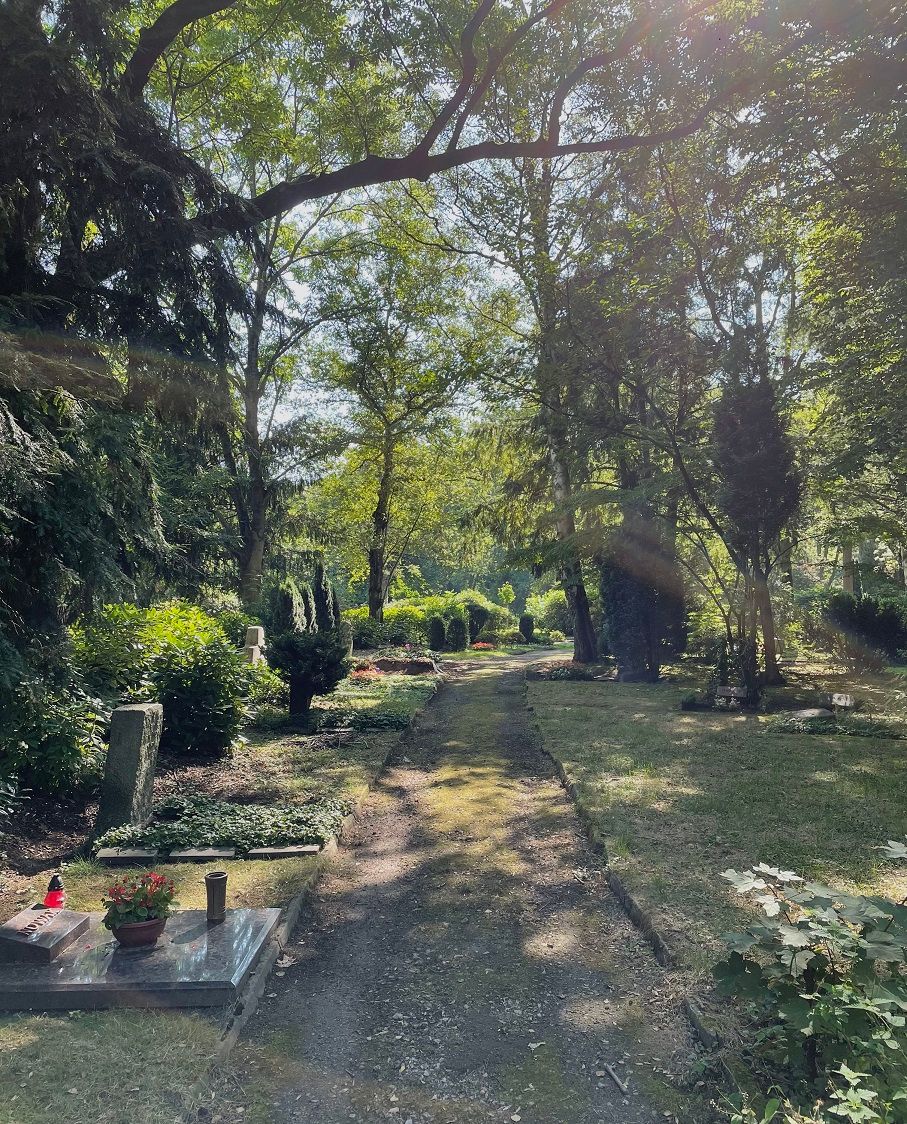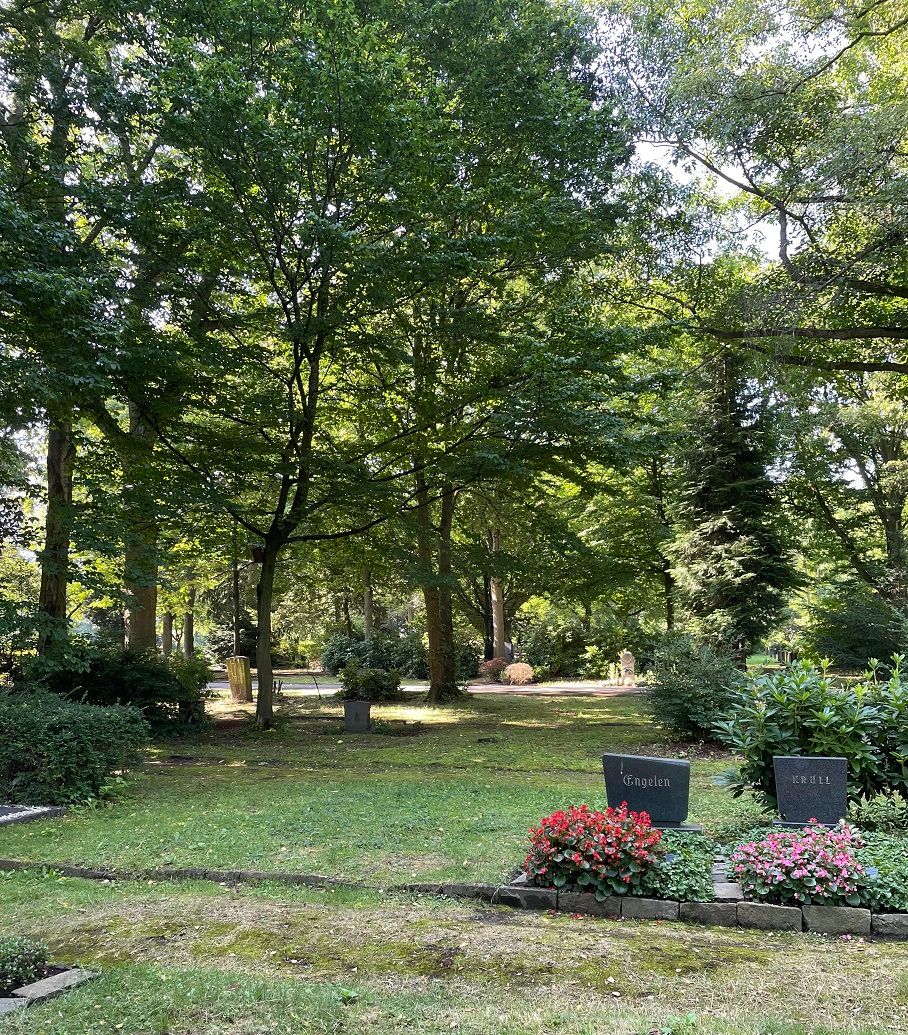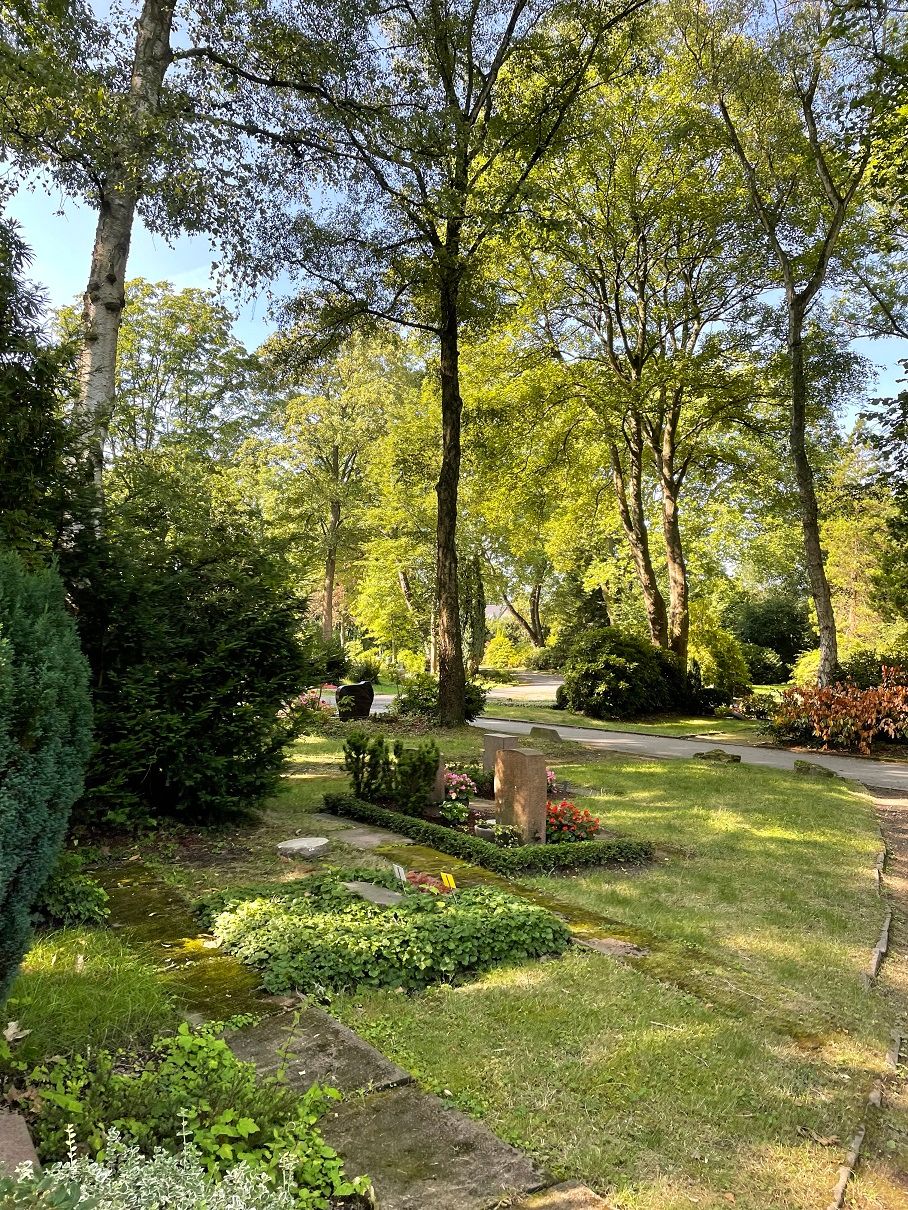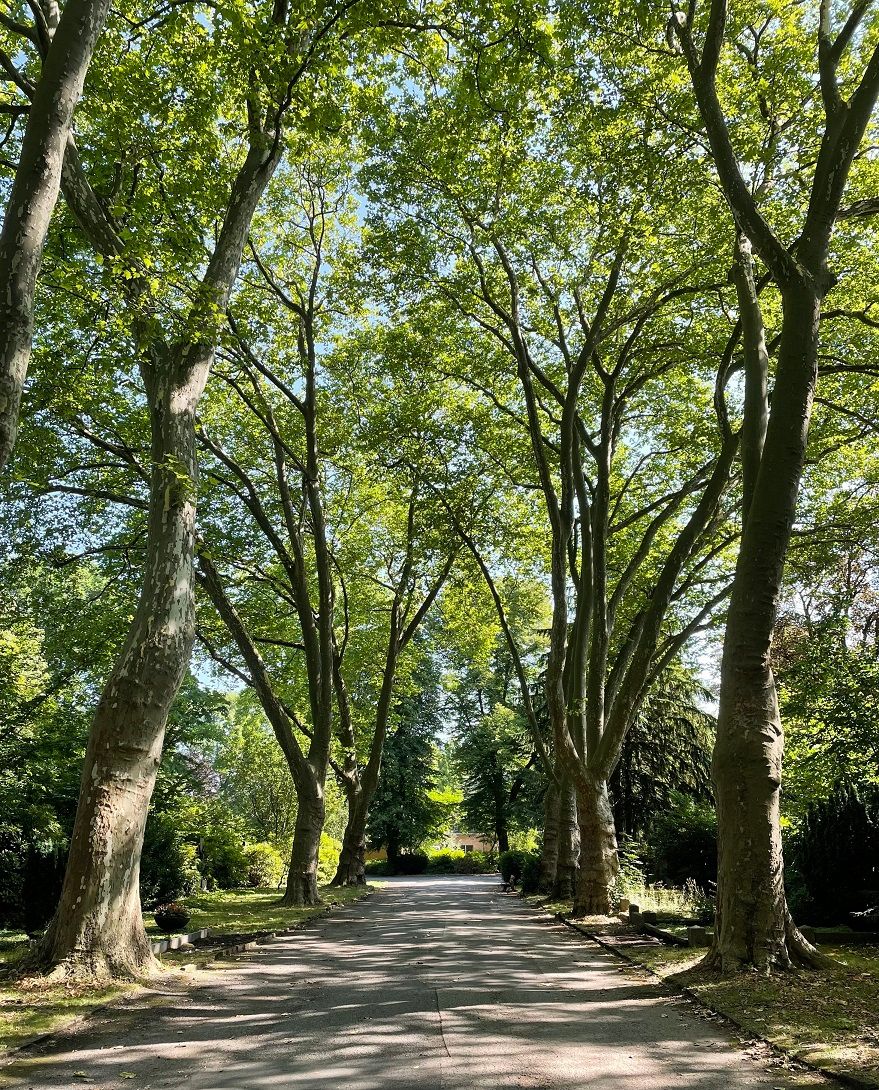During our trip to the U.S. back in June, Ulrich and I took the opportunity to visit two cemeteries: one in Maryland where my father is buried, and the other in New York where Amy is buried.
I was reminded how most cemeteries in the U.S. are a place which you go to - you plan for it in your calendar, get into a car at the designated time, and then you arrive through the gates, driving up to the exact plot which you intended to visit - as opposed to someplace which you might find yourself accidentally wandering into, absent-minded, the way I first discovered the local cemetery here in Wuppertal, about a 15 minute walk from where I live. Cars are generally not allowed in German cemeteries unless they're granted advance permission, so visitors tend to arrive either by foot or by bike, and might find themselves pausing to peruse the names and lifespans of the neighboring dead which they encounter on the way to their loved one.
In Germany, where land is more scarce than in the U.S., your survivors will traditionally sign a 15- or 25- year lease for the plot where you're buried, depending on the cemetery. Once your lease expires, your family must decide whether to renew it - typically for another 15 or 25 years, and then their survivors will have to make that decision after your loved ones have passed away, and so on and so forth, until one day your relatives are no longer reachable by the cemetery owners, or they decide not to renew your lease, or cannot afford to, or simply do not know who you are. When that day arrives, the cemetery regains ownership of the plot of land and your remains might be exhumed in order to make way for the newly deceased, or the land itself could be re-purposed, perhaps into a playground or a community garden. When Ulrich's cousin recently buried her mother next to her father who had died nearly 25 years earlier, the cemetery gave her the option to start her mother's lease, renew her father's and at the same time dig him deeper into the ground to make room for her mother, all of the services packaged together into one fee.




In the U.S., the decision to bury you need only be made once. There is a one-time cost and then your plot is assigned, your name etched in stone, inhabiting space in perpetuity without the need for future renewal by unknown relatives. U.S. cemeteries are often vast, stretching for acres across the horizon, an implicit promise to accommodate future generations. Though some states are more population-dense and land-scarce than others, the U.S. appears to have plenty of foreseeable land for those who will wish to be buried, at least as of this writing in the ninth month of the 23rd year of the third millennium anno Domini.
I think German cemeteries are more pleasant to spend time in. They look less like memorials and more like public gardens, with tombstones interspersed among crooked trees, flowers and bushes teeming with insects. I typically wander into my local cemetery at least once, if not multiple times a week, and take my time ambling down paths as I discover them. I like to study the different tombstones and peek at the little marketing signs left behind at gravesites by the landscaping businesses who maintain them, oftentimes competing side-by-side. Sometimes I talk to the dead - nothing too serious, mind you; I'll just tell them about my plans for the day, or maybe relate some small recent achievement which I'm proud of. I figure these dead have a limited number of renewals here before they'll move on to the after-afterlife, when their places are surrendered to future generations of use - so why not spend this time with them now, while we've both got some to spare?



